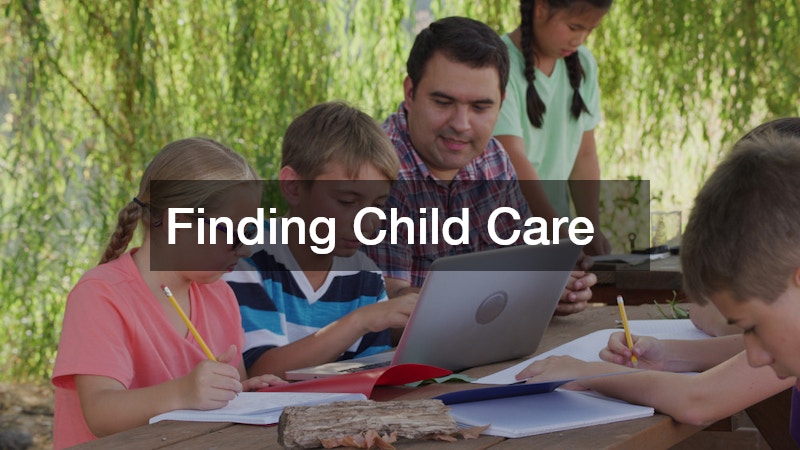The end of a marriage marks the beginning of a daunting journey that encompasses emotional, legal, and logistical challenges. Navigating the path of divorce can seem overwhelming, with each decision carrying significant implications for your future. The complexity increases when issues of custody, financial settlements, and personal safety come into play. A divorce battle is not only a confrontation of legalities but also a confrontation of personal resilience and strategic thinking. Preparing for this journey means understanding not just the legal dimensions but the emotional and familial ones as well. It’s about being informed, seeking the right guidance, and making aware choices throughout this life-altering process. While each divorce case is unique, the core challenges often revolve around similar themes, including financial distribution, child custody, and personal safety. As individuals prepare for what could be one of the most challenging events in their lives, having a comprehensive guide is instrumental. Past experiences have shown that those equipped with knowledge and strategic foresight tend to navigate this complex arena better. With clarity and support, traversing a divorce becomes a journey of transformation and growth.

How to Find the Right Local Divorce Lawyer
Choosing the right local divorce lawyer is crucial in taking clear and calculated steps during a divorce battle. These professionals not only guide you through the legal process but also ensure that your interests are guarded. To find a lawyer who aligns with your needs, start by seeking referrals and reading client testimonials. It’s beneficial to ask friends or family members who have gone through a divorce; they can offer valuable insights and recommend experienced local divorce lawyers.
It’s essential to meet several attorneys before making a decision, as consultations will provide a sense of their approach and compatibility with your situation. Look for a lawyer who not only has expertise in handling divorce cases but is also someone you feel comfortable discussing personal matters with. Communication is key; a good divorce lawyer should be able to explain complex legal terms and processes in a way that you understand.
Pay attention to the attorney’s track record in handling divorce battles. An experienced lawyer should have a well-documented success rate in negotiating favorable settlements or effectively representing clients in court. Remember to discuss fees upfront to avoid surprises later. With the right local divorce lawyer by your side, you can turn a complex divorce battle into a more manageable process.
What Divorce Attorneys Do in Tough Cases
Divorce attorneys play a pivotal role in managing complex divorce battles. Their expertise is particularly critical in cases where assets are substantial, custody is contentious, or where there are allegations of misconduct, such as infidelity or abuse. Navigating these intricate situations necessitates a lawyer familiar with both the law and courtroom tactics.
In tough divorce cases, attorneys also perform in-depth investigations to gather evidence that might impact the outcome. This includes asset valuation and unearthing undisclosed income or property. Divorce attorneys work with financial experts when necessary to ensure fair division and settlement. These professionals are instrumental in advocating for their clients’ rights, centralizing their focus on obtaining a favorable outcome amidst a divorce battle.
They also mediate between disputing spouses, aiming to resolve issues amicably to avoid lengthy court proceedings. A skilled attorney’s ability to negotiate persuasively can often lead to settlements that favor their client’s proposals. By understanding the unique dynamics of each divorce battle, divorce attorneys provide strategic advice and develop bespoke plans tailored to each case.

When to Call a Custody Attorney
One of the most challenging aspects of a divorce battle is the decision regarding child custody. It encompasses more than just living arrangements; it shapes a child’s future. When discussions around custody become contentious, it is wise to engage custody attorneys. These professionals specialize in child welfare and parental rights within the divorce context.
Custody attorneys dive into the nuances of parental agreements and advocate for parenting plans that align with the child’s best interests. They are well-versed in family dynamics and how these impact custody outcomes. When reaching a mutual settlement seems unlikely, these attorneys represent your interests in court, presenting solid evidence and arguments to gain favorable custody terms.
Timing is crucial; contacting custody attorneys at the early signs of a divorce battle ensures that child-related decisions are made thoughtfully and protectively. The emotional weight of custody decisions necessitates expert support to avoid rushed, detrimental choices. Trust and strategizing with a custody attorney promises more coherent and child-focused resolutions during a challenging divorce battle.
How Criminal Law Can Affect Your Divorce
Criminal law procedure and practice can significantly influence the proceedings and outcomes of a divorce battle, especially when allegations of criminal behavior arise. The involvement of defense attorneys becomes crucial in cases where accusations of domestic violence or financial misconduct are prominent. These issues can reflect on divorce settlements, decision-making responsibilities, and custody agreements.
Defense attorneys help manage the complexities brought about by criminal law procedures, aiming to mitigate any negative impacts these might have on the divorce. Evidence proving innocence or mitigating circumstances is critical, as court decisions in a divorce battle don’t just center on the marriage ending but also on protecting the involved parties’ futures.
Additionally, an understanding of criminal law is essential because criminal actions perceived during the divorce process can lead to charges that may affect a spouse’s legal standing and rights, including visitation or custody. Expert guidance from both defense and divorce attorneys ensures the synchronization of strategies for defense and divorce proceedings.

Filing a Restraining Order – What to Know
Filing a restraining order can arise during a divorce battle, especially when personal safety becomes a concern. It is a legal measure aiming to protect individuals from harassment, abuse, or violence by limiting the contact a spouse can have with them. Understanding restraining order filing involves recognizing its legal grounds and potential impacts on the divorce process.
When a restraining order becomes necessary, prompt and precise action is crucial. Legal professionals specializing in family law should be consulted to guide you through the filing process and help compile evidence supporting your case for protection. These orders can be temporary or permanent, depending on the judge’s decision, and significantly influence negotiations in a divorce battle.
Restrictive measures can limit visitation rights or necessitate supervised visits, impacting custody discussions. Besides legal protection, securing a restraining order emphasizes the seriousness of safety concerns, ensuring they’re acknowledged in any agreed-upon settlement. The process underscores the interconnectedness of legal and personal considerations in divorce battles.
How Family Lawyers Support You Beyond Court
Local family lawyers play a crucial role in providing guidance that extends beyond courtroom battles. They are integral in offering emotional support and practical advice, knowing the intricacies of balancing personal well-being with legal obligations during a divorce battle. Their involvement helps you navigate new dynamics in family interactions post-divorce.
Family lawyers understand the emotional toll that a divorce takes; hence, they often serve as a confidant and guide during the most trying times. They recommend resources, such as counseling or support groups, to aid in healing and personal growth. Their support in the aftermath of legal proceedings is invaluable in terms of helping you settle into your new family structure with confidence.
Engaging local family lawyers also involves preparing long-term family plans, such as future custody agreements or modifications. Their expertise allows for adaptive strategies catering to evolving family needs and goals, evidencing their vital role in stabilizing life post-divorce battle. From legal matters to family well-being, these professionals ensure continuity and peace after court matters resolve.

Finding Child Care
During a divorce battle, the stability and care of children become paramount concerns. Amidst changing family structures, accessing reliable local child care centers is vital for maintaining consistency. Such establishments provide not only basic care but a supportive environment, critical for a child’s emotional and social well-being.
Establishing trust with local child care centers involves understanding their policies, meeting with caregivers, and ensuring their values align with your parental expectations. Observations and reviews from other parents can guide selections, offering additional perspectives on a center’s reliability and nurturing environment.
Secure child care facilitates a parent’s ability to manage professional and personal responsibilities during a divorce battle. Peace of mind stemming from reliable child care solutions adds tremendous value to effectively juggling life transitions. Consequently, investing time and effort into finding appropriate community resources reflects positively on a child’s overall adjustment and development during this period.
Talking to Your Child’s School
A child’s school plays a collaborative role during a divorce battle, providing both academic stability and emotional oversight. Engaging with your child’s elementary school about the divorce impacts facilitates open communication, enabling teachers and counselors to be more attuned to your child’s needs.
Initial conversations with school administrators should include discussions on how custody arrangements might affect school schedules or parental involvement. Schools are typically open to modifications, supporting the well-being of the child through understanding and adaptability. They can coordinate with parents to ensure a seamless continuation of education.
Moreover, many schools offer counseling services, creating a supportive network for the child during tough emotional transitions. By fostering cooperation with teachers and counselors, parents underscore their commitment to their child’s education and emotional health during their divorce battle. This coordination is vital for sustaining a nurturing academic atmosphere amidst changing home environments.
Social Security – When to Get Legal Help
Social security considerations can complicate a divorce battle, particularly when spouses are close to retirement or have already retired. It’s imperative to understand how social security benefits might be affected, especially in regards to shared income or previously sustained lifestyles. Consulting with social security attorneys is wise to navigate these complexities.
Legal assistance can inform you about eligibility for benefits based on your spouse’s history if the marriage has exceeded ten years. Understanding which benefits you are entitled to can prevent financial missteps post-divorce. Attorneys help delineate how future benefits integrate with divorce settlements, securing long-term financial security.
Contacting social security attorneys early provides a clear understanding of rights and potential settlements affecting income streams directly tied to past contributions. Their expertise ensures seamless integration of social security considerations within the broader divorce agreement, avoiding surprises or disputes down the road.
Coping with Divorce Stress as a Family
A divorce battle generates significant stress for the entire family, necessitating collective strategies for emotional resilience. Open communication and support systems lay the foundation for managing stress constructively. Comprehension by all family members about ongoing changes can significantly alleviate anxiety and foster a collective, enduring strength.
Promoting collaborative family activities can serve as both a therapeutic and bonding time. Involving children in simple decisions regarding new routines or living arrangements facilitates acceptance and assurance, reaffirming their importance amidst changes. It’s crucial to maintain routines to foster a sense of normalcy and stability during turbulent times.
Counseling services targeted for family dynamics during divorce offer structure and guidance. Engaging in professional counseling helps each family member express sentiments and administer conflict resolution strategies, inevitably easing the stress of a divorce battle. It’s about evolving together and supporting each family member along the journey.
Navigating a divorce battle requires multifaceted approaches, integrating legal expertise with personal resilience and informed decision-making. The complexities of legal proceedings are intertwined with emotional dynamics that affect all aspects of life. Each step taken, from selecting competent local divorce lawyers to consulting custody attorneys, impacts both immediate outcomes and long-term family structures. Understanding the influence of external factors, such as possible criminal law involvements, restraining order filings, and social security considerations, rounds out the legal perspective. Establishing reliable networks of support, including local family lawyers and elementary schools, contributes significantly to personal stability and children’s well-being. By coordinating with supportive community resources like child care centers and maintaining open dialogues within family and educational settings, individuals navigate the transformation that marital dissolution brings. Ultimately, the conscious coupling of professional guidance with emotional support transforms a divorce battle from a daunting challenge to an evolution towards new beginnings. Comprehensive preparation, collaborative planning, and adaptive coping mechanisms define the journey toward rebuilding and resilience. Through this, those involved are empowered, managing divorce adversities with strategic foresight and compassionate understanding.





